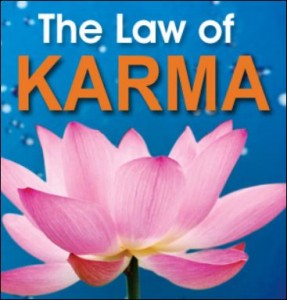Reincarnation is the view primarily proposed by the Hindu and Buddhists that the suffering in this life is the result of wrong living (sin?) from a previous life.  We live now as a reward or punishment for a past life. When we die now, our soul returns to this world as animal, mineral, vegetable or human. It proposes that this process will continue until all are saved, yet salvation is most often described as absorption into the whole. When the scales of our behavior balance we enter nirvana, a state of nothingness. The latest Pew Forum survey of religious beliefs puts the overall percentage of Americans who believe in reincarnation at 24% (men 21%, women 28%). Strangely enough, Blacks (34%) are almost twice as likely to believe in reincarnation as Whites (21%), with Hispanics in the middle (29%).
We live now as a reward or punishment for a past life. When we die now, our soul returns to this world as animal, mineral, vegetable or human. It proposes that this process will continue until all are saved, yet salvation is most often described as absorption into the whole. When the scales of our behavior balance we enter nirvana, a state of nothingness. The latest Pew Forum survey of religious beliefs puts the overall percentage of Americans who believe in reincarnation at 24% (men 21%, women 28%). Strangely enough, Blacks (34%) are almost twice as likely to believe in reincarnation as Whites (21%), with Hispanics in the middle (29%).
Geisler describes the problem: “Explaining suffering as results of karma from a past life never gets to a real explanation. For each previous life, there would have to be another life before that to account for its suffering. One could keep going on like that forever, but would never reach an explanation. He would just be putting it off indefinitely. It would be like covering a hot check by depositing a check in one bank from an account in another bank, and covering that withdrawal by a check from another bank, and so on. Ultimately, some banker is going to ask you, ‘Where is the money?’ And when he does, you had better have it in the account that the last check was written from. There has got to be a payoff somewhere. Reincarnation doesn’t have a payoff when it tries to explain evil. It just keeps passing bad checks.”
To me this is just another kind of purgatory where people must pay for their own sins before they can enter into the presence of God (heaven). Surely one cannot fail to see the difference between personal atonement, paying for one’s own sins, and substitutionary atonement; having the penalty paid by another. Jesus became our substitute because “God so loved the world” (John 3:16). Paul explains the Christian view in 2 Corinthians 5:21. He writes, “For our sake he (God) made him (Christ) to be sin who knew no sin, so that in him (Christ) we might become the righteousness of God.” The law of karma insists on the reincarnation of our soul until we’ve paid for all our sin. But the Bible is clear that Jesus paid all our “karmic debt” as he suffered and died on Calvary’s cross. To the Ephesians, Paul explained “it is by grace we are saved through faith; it is not of works…” (Ephesians 3:8-9).